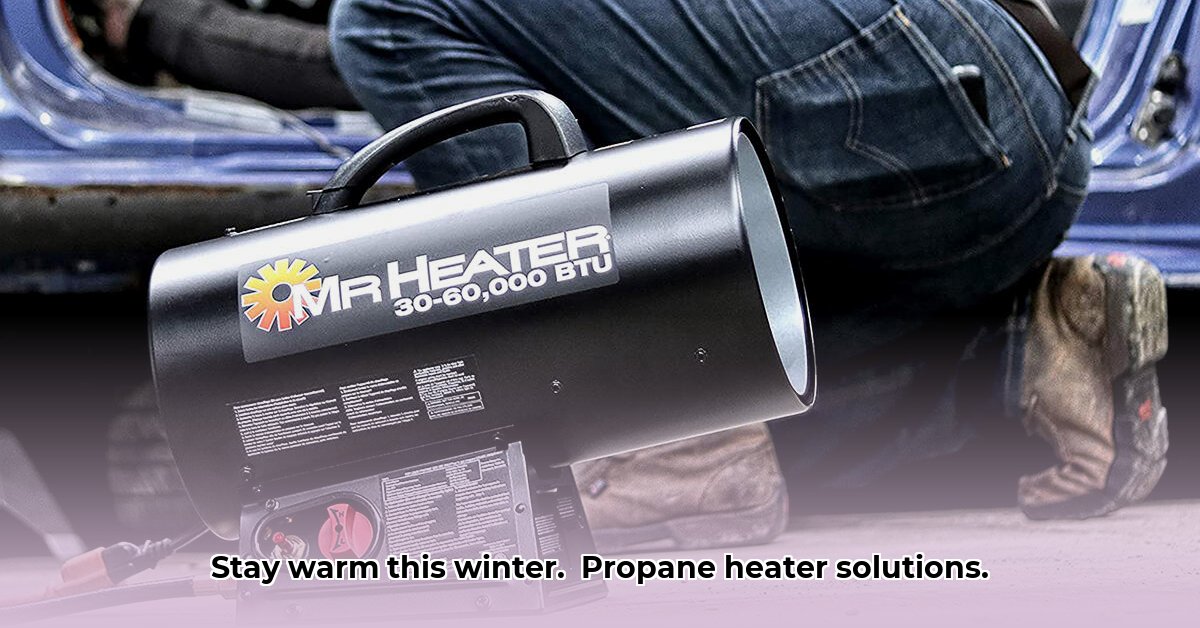
Choosing the Right Propane Heater for Your Needs
Winter's chill can make even the coziest spaces feel uncomfortable. If you need reliable and affordable heating for a garage, workshop, or even a campsite, propane heaters from Tractor Supply offer a convenient solution. But with a variety of models available, choosing the right one can be challenging. This guide helps you navigate the options and find the perfect fit for your needs and budget. For a wide selection, check out the Tractor Supply heater selection.
Factors to Consider Before Buying
Before you start comparing models, consider these key factors:
- Space Size: A small shed will need a much smaller heater than a large workshop. The heater's BTU (British Thermal Unit – a measure of heat energy) rating should match the size of the space you need to heat.
- Portability: Do you need a portable heater you can move easily, or a stationary unit? Tractor Supply offers both.
- Safety Features: Propane heaters present inherent risks. Look for models with automatic shut-off switches (triggered by tip-over or low oxygen levels) and other safety mechanisms. Always read and understand the safety instructions carefully.
- Fuel Efficiency: While propane is generally affordable, some heaters are more efficient than others. A higher BTU output per gallon of propane used indicates better efficiency. This information is frequently found on product packaging or in-store.
Understanding Key Specifications
Several key specifications will help you compare models:
- BTU Output: This indicates the heater's heat-producing capacity (higher BTUs mean more heat for larger spaces). Think of it as the heater's "horsepower."
- Fuel Consumption Rate: This shows how much propane the heater uses per hour (lower is better for your wallet!).
- Coverage Area (Square Footage): This ensures the heater effectively warms your space; mismatch could leave you cold.
- Safety Features: Prioritize automatic shut-off, tip-over protection, and oxygen depletion sensors for maximum safety.
- Portability: Consider weight, handles, and wheels if you need to move the heater regularly.
Propane Heaters: Advantages and Disadvantages
Propane heaters offer several benefits, but it's crucial to weigh them against potential drawbacks:
| Advantages | Disadvantages |
|---|---|
| Powerful and efficient heating | Requires regular propane tank refills |
| Relatively clean-burning fuel | Propane costs can fluctuate |
| Portable and stationary options available | Potential for carbon monoxide buildup (ventilation crucial) |
| Quick heat-up times | Not as environmentally friendly as some alternatives |
Comparing Models and Calculating Costs
Tractor Supply offers various propane heater models. Direct comparison requires specific model details (BTU output, fuel consumption rate, price) usually found on product packaging or the Tractor Supply website 1. To illustrate, let's consider two hypothetical models:
| Feature | Model X | Model Y |
|---|---|---|
| BTU Output | 40,000 BTU | 30,000 BTU |
| Fuel Consumption | 0.8 gallons/hour | 0.6 gallons/hour |
| Price | $200 | $150 |
| Safety Features | Tip-Over, Low Oxygen Sensor | Tip-Over only |
Model Y is more fuel-efficient, but Model X produces more heat. The best choice depends on your space, budget, and priorities. Calculating long-term costs involves estimating daily usage, multiplying by the fuel consumption rate, and factoring in your local propane price.
Beyond Efficiency: Safety and Long-Term Considerations
Safety is paramount. Always ensure adequate ventilation to prevent carbon monoxide buildup and regularly check for leaks. Regular maintenance—following the manufacturer's instructions—extends the heater's lifespan. While propane offers efficient heating, remember to research increasingly available sustainable alternatives for a more environmentally responsible approach to heating.
3 Pivotal Points:
- Choosing the right propane heater hinges on matching BTU output to space size, considering portability needs, and prioritizing safety features.
- Long-term cost comparison requires factoring in both the initial purchase price and ongoing propane expenses, considering fuel consumption rates.
- Safety and proper ventilation are crucial to prevent carbon monoxide poisoning. Regular maintenance is essential for longevity and safety.